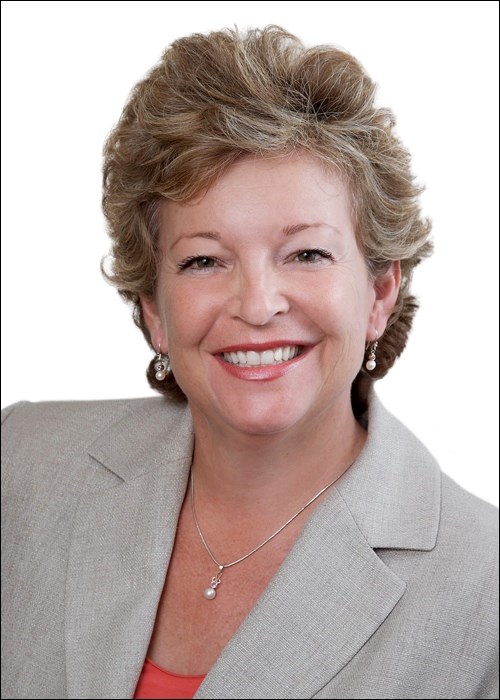One of the issues of increasing concern to parents is having that family wealth conversation. With increasing affluence, the present post-war Baby Boom generation is confronting – more so than their parents had to – the best way to approach talking with their children about financial matters, including their eventual inheritance.
While we have formal education in core subjects such as mathematics, history, and English as part of the standard elementary and secondary school curriculum, financial literacy is only beginning to become part of the education system.
Yet we know that generally when it comes to learning skills, whether it is a second language, a musical instrument, or downhill skiing, the earlier is generally the better. It seems, however, that the teaching of financial skills and financial education is often delayed until our children are in their late 20s and is often comprised of an informal mentoring process based on family discussion and tips, rather than a formal, objective approach.
“Too little, too late” perhaps best describes the present reality of financial education in most families. In RBC’s recent Wealth Transfer Report 2017, key findings include that the key to raising financial literacy and building financial confidence in our children is to start early, and that most of those surveyed believe a structured approach is more effective than an unstructured one.
A key finding of the Report (which we would likely all agree with) is that our present societal values include a reticence and lack of comfort in talking about financial matters, inheritance, and death, leading to inaction and a recurring cycle of inadequate financial guidance intergenerationally.
Simply repeating how our parents informally educated us is arguably not sufficient. Life and financial matters are more complex, and without proper financial management skills, our children’s financial wellbeing and what they stand to inherit from us is at risk.
It seems the wealth management conversation is moving forward to now emphasize the importance of an open dialogue on money issues and to stress the need for greater financial literacy and a more formal approach. I would offer a comparison – many of the present generation of Baby Boomers learned to drive a car under the instruction of a parent, as driver’s ed was just beginning. But now, few, if any, of our children learn those skills without a formal education course with a qualified instructor.
Navigating through the complexity of our modern financial world and arriving at the desired destination intact and without any accidents along the route requires now more than ever a comprehensive and formal approach and open dialogue.
Courtesy Fundata Canada Inc. © 2017.Margaret O’Sullivan is the principal of the Toronto-based trusts and estates law firm O’Sullivan Estate Lawyers.This article is not intended as personalized advice.
The family wealth conversation – too little, too late?
By Margaret O’Sullivan
One of the issues of increasing concern to parents is having that family wealth conversation. With increasing affluence, the present post-war Baby Boom generation is confronting – more so than their parents had to – the best way to approach talking with their children about financial matters, including their eventual inheritance.
While we have formal education in core subjects such as mathematics, history, and English as part of the standard elementary and secondary school curriculum, financial literacy is only beginning to become part of the education system.
Yet we know that generally when it comes to learning skills, whether it is a second language, a musical instrument, or downhill skiing, the earlier is generally the better. It seems, however, that the teaching of financial skills and financial education is often delayed until our children are in their late 20s and is often comprised of an informal mentoring process based on family discussion and tips, rather than a formal, objective approach.
“Too little, too late” perhaps best describes the present reality of financial education in most families. In RBC’s recent Wealth Transfer Report 2017, key findings include that the key to raising financial literacy and building financial confidence in our children is to start early, and that most of those surveyed believe a structured approach is more effective than an unstructured one.
A key finding of the Report (which we would likely all agree with) is that our present societal values include a reticence and lack of comfort in talking about financial matters, inheritance, and death, leading to inaction and a recurring cycle of inadequate financial guidance intergenerationally.
Simply repeating how our parents informally educated us is arguably not sufficient. Life and financial matters are more complex, and without proper financial management skills, our children’s financial wellbeing and what they stand to inherit from us is at risk.
It seems the wealth management conversation is moving forward to now emphasize the importance of an open dialogue on money issues and to stress the need for greater financial literacy and a more formal approach. I would offer a comparison – many of the present generation of Baby Boomers learned to drive a car under the instruction of a parent, as driver’s ed was just beginning. But now, few, if any, of our children learn those skills without a formal education course with a qualified instructor.
Navigating through the complexity of our modern financial world and arriving at the desired destination intact and without any accidents along the route requires now more than ever a comprehensive and formal approach and open dialogue.
Courtesy Fundata Canada Inc. © 2017.Margaret O’Sullivan is the principal of the Toronto-based trusts and estates law firm O’Sullivan Estate Lawyers.This article is not intended as personalized advice.




